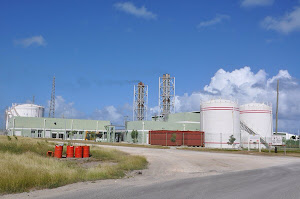BRIDGETOWN, Barbados, Dec 13 2012 (IPS) - With the exception of oil rich Trinidad and Tobago, most, if not all, other Caribbean islands are extremely vulnerable when it comes to the high costs of imported fuels that are easily disrupted by natural disasters and other phenomena.
Barbados, for example, has spent an estimated four million dollars on oil imports in 2011, equal to six percent of its gross domestic product (GDP). This amount has had a direct negative impact on direct production costs and the overall competitiveness of the Barbadian economy.
The island’s prime minister, Freundel Stuart, however, pointed out that “although many small island developing states are energy deficient in conventional energy, limitless potential for renewable energy and energy efficiency resides in our countries”.
Stuart said that the fundamental issue is how small island developing states (SIDS), which have “inherent structural problems and limited resources”, can “convert this renewable energy potential into a tangible product that is accessible, affordable and adaptable”.
Barbados has been actively promoting sustainable energy practices both on the supply side, mainly using renewable energy sources, and on the demand side, encouraging energy efficiency and energy conservation, in an effort to reduce its dependence on fossil fuels, enhance energy security and stability, improve the economy’s competitiveness and achieve greater environmental sustainability.
Barbardos has more than 40,000 solar water heaters that save the country nearly 13 million U.S. dollars every year. “We are using the country’s success in this industry as a platform for renewable energy development,” Stuart said.
The Caribbean Community (CARICOM) observed its second annual CARICOM Energy Week from Nov. 11-17 under the theme of “sustainable energy powering a green economy”. The Energy Week was established in 2011 to provide a platform for increased awareness about energy matters, especially given the critical importance of energy to economic developmenHour Grows Late to Act on Climate Change, Caribbean Warns
This year, the Community focused on building awareness about energy conservation and efficiency, as well as the development of renewable energy. It also focused on the necessity of a cleaner, greener energy outlook to mitigate the effects of climate change.
Currently, the Caribbean region depends heavily on imported petroleum and petroleum products, to the tune of 9 billion U.S. dollars per year over the last few years.
Stuart’s Antigua counterpart, Prime Minister Baldwin Spencer, told IPS that energy in all its various forms is essential to all forms of economic and social development. Energy Week provided an opportunity to reflect on the uses of energy in Antigua and Barbuda and develop strategies for promoting its efficient and sustainable use.
“As a small island state, Antigua and Barbuda is also among the countries most vulnerable to global climate change resulting from the use of fossil fuels, and therefore must lead by example in promoting sustainable uses of energy resources, including through energy conservation and energy efficiency,” he said. More
